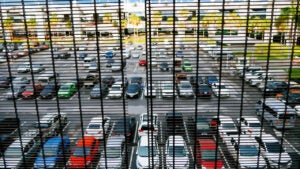What to do when your car insurance is canceled for a missed payment

Whether you couldn’t afford to pay your bill on time or simply forgot to set up that recurring payment, missing a car insurance charge can have different outcomes, depending on your insurer’s policies and how quickly you address the situation. While some carriers may have a grace period for missed payments, others could cancel your policy, potentially leaving you uninsured. Here’s what to do if you miss a payment and strategies to avoid a lapse in coverage on a tight budget.
What happens if I miss a car insurance payment?
Whether you are buying auto insurance for the first time or renewing an existing policy, one of the things you need to think about is being able to make your payments on time. Insurance companies generally set a specific date and time in which they expect to receive your payment, and if you miss it, they could cancel your policy. In some cases, insurance companies have the option to cancel your car insurance policy even if you’re one day late on your payment.
Having a lapse in insurance coverage can cost you in various ways, and it might be even harder to obtain coverage in the future. Here are some of the biggest penalties you might face for missing a car insurance payment:
- Policy cancellation: As mentioned, your auto insurer will eventually cancel your policy when you have missed a certain number of payments or get too behind.
- Failure to renew your policy: Not only will the insurance company cancel your policy, but they might not allow you to purchase another policy from them.
- Increased rates: When you purchase a new policy, your rate might be much higher than it was before due to having a lapse in coverage.
- Fines from the Department of Motor Vehicles (DMV): Car insurance is required to drive legally in almost every state, so it is possible that you could receive a fine from the DMV for having a lapse in coverage.
- License/registration suspension: If you get caught driving without valid insurance, it is highly likely that your driver’s license and registration will get suspended until you can show updated proof of coverage.
- Fines from your lienholder: If your vehicle is financed and your car insurance lapses, your lienholder could charge you penalties for not maintaining auto insurance. Lienholders may even take out insurance on your behalf, called force-placed coverage, and add the premium amount to your loan payment.
- Impacted credit score: Unpaid bills can end up affecting your credit score.
What happens if your car insurance has been canceled for non-payment?
If you’ve missed a car insurance payment, take a deep breath; there’s likely a way to fix it. Here’s a quick guide to help you navigate the situation:
- First missed payment: Don’t worry just yet. If this is your first time missing a payment, your insurance company might cut you some slack, especially if you’re only a few days overdue. Pay your premium promptly and reach out to your insurer as soon as you notice the missed payment. A quick call to explain the situation can sometimes prevent any further issues. And, if you’re not already on autopay, this might be a good time to consider it. It’s a simple way to avoid this stress in the future.
- Missed payment beyond a few days: If more time has passed, it’s important to act quickly. Contact your insurance provider right away to discuss your options. If your policy doesn’t include a grace period, or if you’ve missed it, your coverage could be at risk. While receiving a cancelation notice isn’t pleasant, it’s better to be aware and address it immediately.
- Multiple missed payments: If this isn’t your first missed payment, your carrier might not be as lenient. You should still contact your carrier right away, and setting up autopay could help avoid this issue in the future. If you’re missing payments because you can’t afford to pay your premium, it might be time to shop around and see if you can find more affordable coverage elsewhere. It might also be worthwhile to check with your current carrier to see if there’s any additional discounts you can qualify for to potentially lower your rate.
If my car insurance is canceled, can I get it back?
If your car insurance is canceled, you’re no longer legally allowed to drive in most states until you secure a new policy. To reinstate your coverage, you’ll need to purchase another insurance policy. Failing to do so could lead to fines or even license suspension if you’re pulled over. You may be able to reinstate your policy with your previous insurer, or you may need to shop around for coverage with another carrier.
While a lapse in coverage may lead to higher insurance rates, experts emphasize that paying extra is far better than risking a fine or license suspension for being caught driving without insurance, not to mention the potentially significant consequences of being involved in a car accident while uninsured. If you’re at fault, you’ll likely have to cover damages out of pocket and may face a lawsuit if you’re unable to pay.
What to do if you cannot afford your next car insurance payment
If your budget is tight, you might know ahead of time that you will not be able to pay your next month’s car insurance premium. In this case, you should contact your auto insurer as soon as possible.
Every insurance company has different policies, but you might be able to request a different payment deadline, perhaps closer to your payday. It is also possible that your insurance provider would let you defer that month’s payment, which means you would pay it later.
If your insurance policy is set to autopay, you may be able to delay the payment by signing into your online customer portal or the insurance company’s mobile application. If you can let your insurance company know before the due date, they might be able to pause the payment for you.
Bankrate’s take: Many insurance companies will also offer a small discount for drivers who set up autopay. So, in addition to making sure you won’t accidentally miss a payment, your premium may be slightly cheaper.
How to avoid a missed car insurance payment
If you have missed multiple car insurance payments in the past, there are a few things you can do to avoid non-payment issues in the future.
-
- Enroll in autopay: As mentioned, the easiest thing is to enroll in automatic payments so the money will automatically be deducted from your bank account or charged to your credit card. But if you get a new bank or credit card number, make sure to update any bills on autopay that the old account number was associated with, including your insurance bill.
- Set reminders: If you’re worried about what happens if you miss a car insurance payment, the best way to avoid potential penalties is to make sure you are making payments. To do that, set a reminder — perhaps on your phone or your calendar — that will alert you when your bill is due. Consider setting multiple in the days leading up to your payment date so you don’t forget.
- Shop around for cheaper coverage: If your car insurance is canceled, you might not be able to get it back. But you can use it as an opportunity to shop around for a more affordable — and potentially more flexible — policy. In fact, you can typically cancel and switch plans anytime if you find a better price.
- Ask about a grace period: Some insurance providers offer grace periods after the payment due date that allow you to make your payment several days later without losing coverage. Contact your insurance company if you miss a payment and ask if they have a grace period or are willing to extend one to you.
Frequently asked questions
Why we ask for feedback Your feedback helps us improve our content and services. It takes less than a minute to complete.
Your responses are anonymous and will only be used for improving our website.
You may also like

How to get your car out of impound without insurance

What to do if your homeowners insurance is canceled

What to do if your car insurance is canceled





